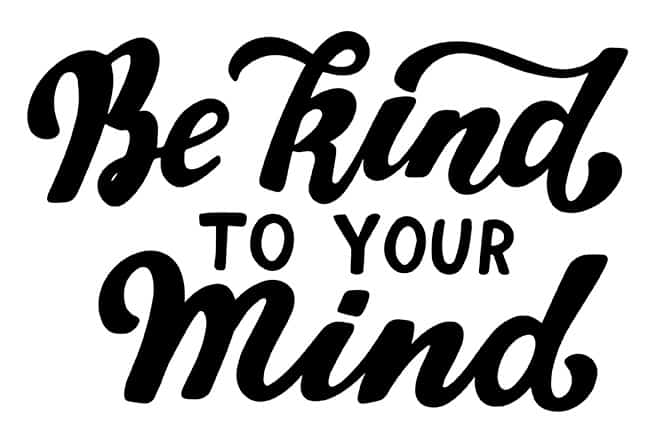Have you ever heard of Random Acts of Kindness Day? It’s a day to celebrate and inspire random acts of kindness in your community. While it originated in New Zealand, where it is celebrated annually on September 1st, it has now spread throughout many countries worldwide. In the U.S., it is celebrated on February 17th every year.
While February 17th will have passed by the time you’re reading this blog, we at Advanced Behavioral Health believe that acts of kindness can and should be shared every day, no matter how small. With the current events in Ukraine, the energy of kindness is needed now more than ever.
It’s no surprise that the mental health of humans around the globe has been challenged in the last few years as we’ve all had to learn to cope with Covid-19 and its ongoing effects on life as we knew it. Current events continue to send many of us into states of fear, confusion, and a feeling of hopelessness, just as Covid case numbers finally began to decrease in the U.S.
So, you may be wondering how a notion as simple as spreading kindness is supposed to help in the grand scheme of things. And that’s a fair assessment. However, it is often the tiny, seemingly insignificant everyday actions we take that create ripple effects in the lives of ourselves, others, and those around the world. Therefore, we share ten small ways to spread kindness to those around you in this blog.
Ten Ways to Spread Kindness
Say hello.
While this one sounds almost too obvious to write, many of us stopped acknowledging each other in the smallest of ways during social distancing. Holding the door, saying good morning to a passerby, even stating “thank you” to the barista for making a cup of coffee all became sentiments many of us unconsciously chose to forego. It’s time to reconnect to one another, face to face, not just virtually. Try saying hello to someone who passes you on the street or “I appreciate you” to the person who delivers your takeout. This simple act can go a long way in someone’s day.
Offer something to a service person.
Show your appreciation to those who serve you every day, like a mail person. Next time your mail person hands you your mail, ask if they’d like a water bottle, seltzer, or soda. They work so hard and rarely are noticed for it. This can really make someone’s day.
Pay it forward (literally).
Next time you’re in a drive-through or grabbing a cup of coffee before work, offer to buy the person behind you their meal or their drink order. When they ask you why you did it, just say you want to spread kindness and tell them they can thank you by doing the same for someone when they can.
Give a compliment.
Again, this seems like such an obvious one, but so many of us are uncomfortable both giving and receiving compliments. Next time you see someone at Target or the grocery store who has pretty eyes or a nice-sounding voice, tell them! It only takes about three seconds of your time, and it could quite literally be the best part of their entire day. Don’t just think kind things; share them.
Send a co-worker a kind email.
Is there someone you work with you’re really grateful for? Shoot them an email next time you’re in the office, letting them know that they make work a little better and give them a specific example of how. Sending and receiving emails can become such a monotonous thing; it’s nice to throw a little kind surprise out there to someone you like!
Send snail mail.
Be honest. When was the last time you sent someone a note in the mail? We’ve gotten so used to texting and sending emails that we’ve forgotten how great it feels to receive a handwritten note from someone we love. Go to the store or a local shop, find a thoughtful card, and write a little message telling your friend or loved one why you appreciate having them in your life. You won’t regret it.
Cook for someone.
Do you have a friend or neighbor who is struggling? Maybe they have seasonal depression, or they recently lost their job. When people are going through a hard time, it can often feel challenging to do simple things like cook yourself a meal. By making them something and bringing it over, you can let them know that you’re thinking of them and that they’re not alone.

Write down affirmations.
For this blog, we’re not just throwing in one way to share kindness with yourself but THREE ways! That’s right. Buckle up – you’re on the self-love bus. Write down three affirmations before bed tonight. They can be simple like – “I am a hard worker” or “I am a really good friend.” Taking the time to think of something positive about ourselves rather than harping on the negative can help us create new neural pathways in the brain, leading to more joy and self-love.
Change your name.
What the heck? Yup, we said it. Do you order things from Amazon regularly or have other pieces of mail like bills or packages sent to your house? Instead of writing your name in the name box, try writing something like “The Lovely” or “The Beautiful” or “The Intelligent” as a prefix. It might feel silly, but most likely, you will forget, and then when you receive your mail, you will smile and feel loved. And if you’re lucky, your mail person will also get a kick out of it!
Make you your background.
That’s right. Find a photo of yourself as a child where you look extra cute. Make this photo the background of your phone. When we look at photos of ourselves as adults, it’s easy to pick ourselves apart, but when we look at younger versions of ourselves, especially as little children, we tend to feel a sense of self-love. This is a great way to practice being kinder to ourselves.
Get In Touch
Don’t underestimate how spreading kindness can change someone’s day, week, or even life. It can change your own, too. Contact us today to learn how we can assist with your mental health needs.

